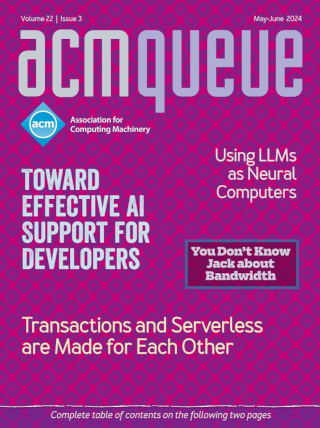Brendan Burns, Brian Grant, David Oppenheimer, Eric Brewer, John Wilkes - Borg, Omega, and Kubernetes
Though widespread interest in software containers is a relatively recent phenomenon, at Google we have been managing Linux containers at scale for more than ten years and built three different container-management systems in that time. Each system was heavily influenced by its predecessors, even though they were developed for different reasons. This article describes the lessons we’ve learned from developing and operating them.
Rishiyur S. Nikhil - Abstraction in Hardware System Design
The history of software engineering is one of continuing development of abstraction mechanisms designed to tackle ever-increasing complexity. Hardware design, however, is not as current. For example, the two most commonly used HDLs date back to the 1980s. Updates to the standards lag behind modern programming languages in structural abstractions such as types, encapsulation, and parameterization. Their behavioral semantics lag even further. They are specified in terms of event-driven simulators running on uniprocessor von Neumann machines.
John R. Mashey - The Long Road to 64 Bits
Shakespeare’s words often cover circumstances beyond his wildest dreams. Toil and trouble accompany major computing transitions, even when people plan ahead. To calibrate “tomorrow’s legacy today,” we should study “tomorrow’s legacy yesterday.” Much of tomorrow’s software will still be driven by decades-old decisions. Past decisions have unanticipated side effects that last decades and can be difficult to undo.
Comments
(newest first)





